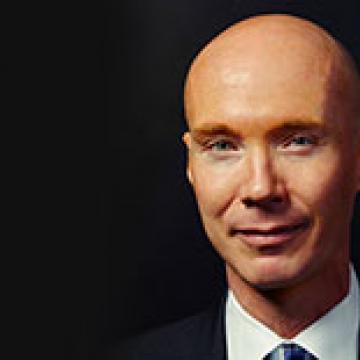Q&A: What Nixon's Chennault Affair reveals about Michael Flynn
The Miller Center's Ken Hughes on the parallels between scandals of 1968 and today
[Read the full article in UVA Today]
In 1968, Anna Chennault, a representative of then-Republican presidential nominee Richard Nixon, communicated with a foreign government and urged it to resist a diplomatic initiative by the sitting US president.
Now known as the Chennault Affair, the backchannel negotiations that Nixon established before the 1968 election are detailed in taped recordings held by the University of Virginia’s Miller Center. The incident has become relevant once again following the recent guilty pleas by President Donald Trump’s former National Security Advisor Michael Flynn, according to Miller Center scholar Ken Hughes, author of Chasing Shadows: The Nixon Tapes, the Chennault Affair, and the Origins of Watergate.
On Dec. 1, Flynn pleaded guilty to lying to the FBI about his contact with Russia’s ambassador to the United States, Sergey Kislyak. Among other communications, the court filings state that Flynn, on the orders of a “very senior member” of then-president-elect Trump’s transition team, asked Kislyak to delay or veto a United Nations Security Council resolution condemning Israeli settlements in Palestinian territories. Sitting President Obama had chosen not to block or veto the resolution, which passed on Dececmber 23, 2016, despite Flynn’s efforts.
Thanks to the Miller Center’s collection of secret White House tapes and journalist and author John Farrell’s new research on Nixon, we now know Chennault, a top Republican fundraiser, played a similar go-between role for Nixon in 1968—with far-reaching consequences.
Nixon used Chennault and South Vietnamese Ambassador Bui Diem to undermine President Lyndon B. Johnson’s efforts to start peace talks to end the Vietnam War, where ongoing conflict was costing thousands of American and Vietnamese lives. If the talks started before the November 1968 election, Nixon feared, they would give a boost to Hubert Humphrey, his Democratic opponent and Johnson’s vice president.
